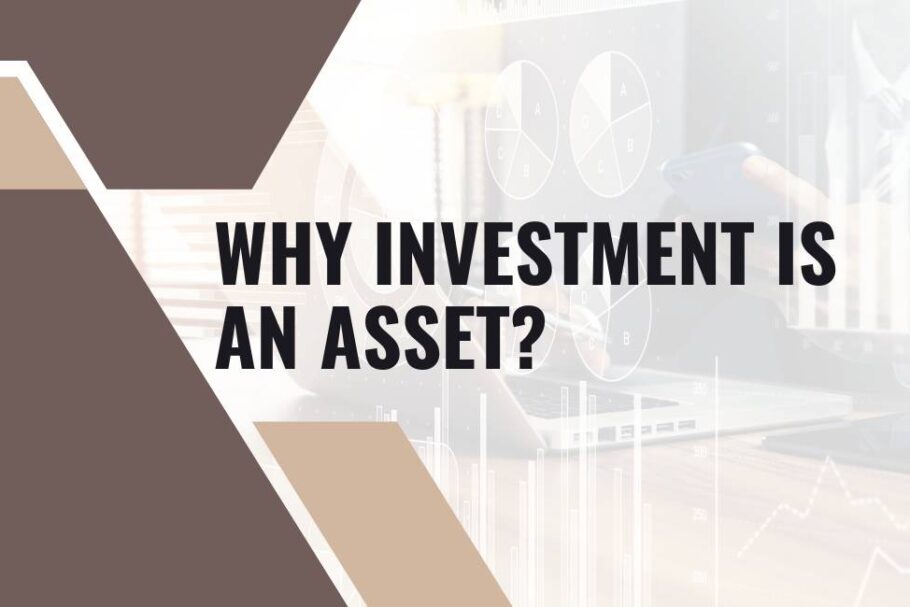Why Investment is an Asset?

Investment is an asset because it offers the potential for future earnings. Investment assets can be either tangible or intangible. Tangible investment assets are the products of physical work, such as buildings, machinery, and goods in the process; intangible investment assets are nonphysical products that have value to others, such as patents and franchises.
Investment also has a more specific meaning when used by economists to denote money or other resources expended now to achieve a future income stream. In this sense, investment is synonymous with working capital.
Investment is also related to the concept of entrepreneurship. Investment is a way of creating wealth and how accumulating it. The capital required to start a business involves investments in the form of cash, bank loans, raw materials, and inventory. There are also intangible ones – software solutions, franchise rights and intellectual property – that require significant upfront investments.
This article will briefly outline how investment can be an asset to you both as an entrepreneur and a homeowner.

Investment – Entrepreneur Perspective
The real question regarding investment is; how do you make it work for you? What should be the purpose of your investments? The answer is simple – to make money. When making investment decisions, consider the following:
Liquidity – How easily can you convert your investment into cash? The greater the liquidity, the easier it will be to convert your asset into cash. You can quickly do this if you need to, say, pay off a mortgage or buy a car.
- How easily can you convert your investment into cash? The greater the liquidity, the easier it will be to convert your asset into cash. You can quickly do this if you need to, say, pay off a mortgage or buy a car. Tax efficiency – Does this investment have an opportunity to generate significant tax savings or credits? Avoid losing money on investments purchased with borrowed money. For example, if you purchase commercial property with borrowed money and use debt financing instead of investing cash, then any future appreciation is taxable.
- Does this investment have an opportunity to generate significant tax savings or credits? Avoid losing money on investments purchased with borrowed money. For example, if you purchase commercial property with borrowed money and use debt financing instead of investing cash, then any future appreciation is taxable. Diversification – Diversify your portfolio by spreading your investments into different asset classes: equities (stock), bonds, commodities (like gold), real estate, and precious metals. This will reduce the risk of losses in any one asset class.
- Diversify your portfolio by spreading your investments into different asset classes: equities (stock), bonds, commodities (like gold), real estate, and precious metals. This will reduce the risk of losses in any one asset class. Return – You should be aware of the potential return on your investment. High-risk investments, such as during the early stages of a small business venture, can potentially earn you a high return on your investment; riskier investments can be illiquid and high-maintenance.
These investment principles boil down to one simple rule: invest in assets or businesses that have good profit potential.

Investment – Homeowner Perspective
The value of your house will invariably appreciate over time due to inflation. By investing in a home, for example, you can potentially make more money over time than you could by putting your money into a bank account at a fixed interest rate.
This is because the equity in a house is not fixed in value. As the value of your home increases, this increases the equity and that creates positive cash flow for you in the future. This cash flow can be used to pay down monthly mortgage payments which free up money to put towards other debt obligations. The net effect is that your debt obligations become more manageable.
Let’s say you’re making $10,000 a year on your investments. That’s good but not great – and it doesn’t sound like much unless you’re on a tight budget. But now suppose that your house is worth $50,000 more than what you owe. This translates into an extra $10,000 a year in your pocket. Since the value of your house will continue to rise in the future, you could potentially make $10,000 a year forever.
Of course, that assumes that you hold on to your home and it doesn’t fall in value. If you were to sell your home and use the additional cash flow to pay off debt obligations, then it would become even more powerful. For example, suppose you have a $50,000 mortgage and $50,000 of credit card debt. You sell your home and use the proceeds (less selling costs) to pay off all of your debt. Suddenly you’re debt free and earning $10,000 a year in cash flow from the house that you sold.
Investing can be a powerful way of setting yourself up for the future. Investment is a great way to build wealth, whether it’s in property or businesses.
While investing in property is an excellent way to grow wealth, such as with a rental property, numerous other investment types can also help you reach your financial goals. For example, investing in stocks and bonds can be very lucrative on a short-term or long term basis.